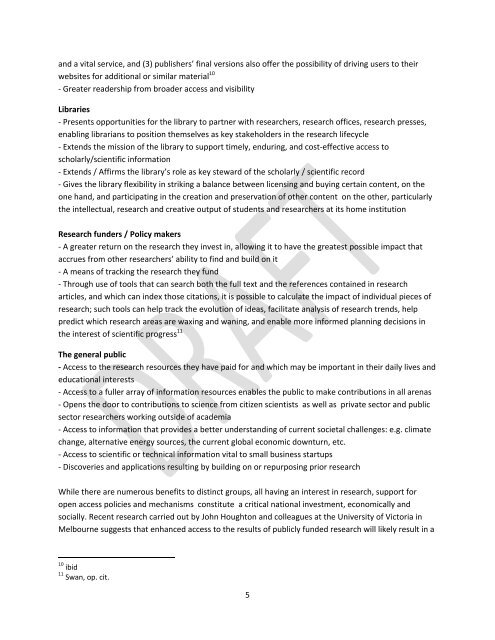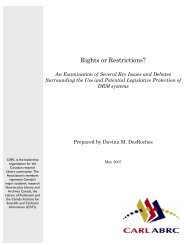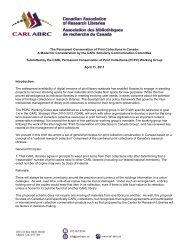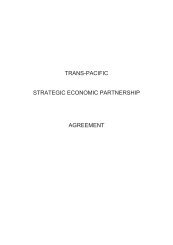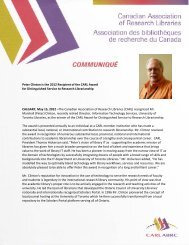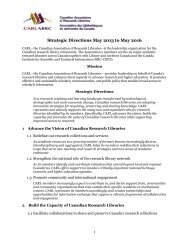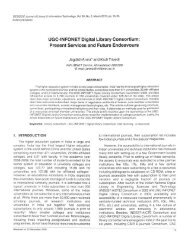PDF - CARL - ABRC
PDF - CARL - ABRC
PDF - CARL - ABRC
Create successful ePaper yourself
Turn your PDF publications into a flip-book with our unique Google optimized e-Paper software.
and a vital service, and (3) publishers’ final versions also offer the possibility of driving users to their<br />
websites for additional or similar material 10<br />
‐ Greater readership from broader access and visibility<br />
Libraries<br />
‐ Presents opportunities for the library to partner with researchers, research offices, research presses,<br />
enabling librarians to position themselves as key stakeholders in the research lifecycle<br />
‐ Extends the mission of the library to support timely, enduring, and cost‐effective access to<br />
scholarly/scientific information<br />
‐ Extends / Affirms the library’s role as key steward of the scholarly / scientific record<br />
‐ Gives the library flexibility in striking a balance between licensing and buying certain content, on the<br />
one hand, and participating in the creation and preservation of other content on the other, particularly<br />
the intellectual, research and creative output of students and researchers at its home institution<br />
Research funders / Policy makers<br />
‐ A greater return on the research they invest in, allowing it to have the greatest possible impact that<br />
accrues from other researchers’ ability to find and build on it<br />
‐ A means of tracking the research they fund<br />
‐ Through use of tools that can search both the full text and the references contained in research<br />
articles, and which can index those citations, it is possible to calculate the impact of individual pieces of<br />
research; such tools can help track the evolution of ideas, facilitate analysis of research trends, help<br />
predict which research areas are waxing and waning, and enable more informed planning decisions in<br />
the interest of scientific progress 11<br />
The general public<br />
‐ Access to the research resources they have paid for and which may be important in their daily lives and<br />
educational interests<br />
‐ Access to a fuller array of information resources enables the public to make contributions in all arenas<br />
‐ Opens the door to contributions to science from citizen scientists as well as private sector and public<br />
sector researchers working outside of academia<br />
‐ Access to information that provides a better understanding of current societal challenges: e.g. climate<br />
change, alternative energy sources, the current global economic downturn, etc.<br />
‐ Access to scientific or technical information vital to small business startups<br />
‐ Discoveries and applications resulting by building on or repurposing prior research<br />
While there are numerous benefits to distinct groups, all having an interest in research, support for<br />
open access policies and mechanisms constitute a critical national investment, economically and<br />
socially. Recent research carried out by John Houghton and colleagues at the University of Victoria in<br />
Melbourne suggests that enhanced access to the results of publicly funded research will likely result in a<br />
10 ibid<br />
11 Swan, op. cit.<br />
5


